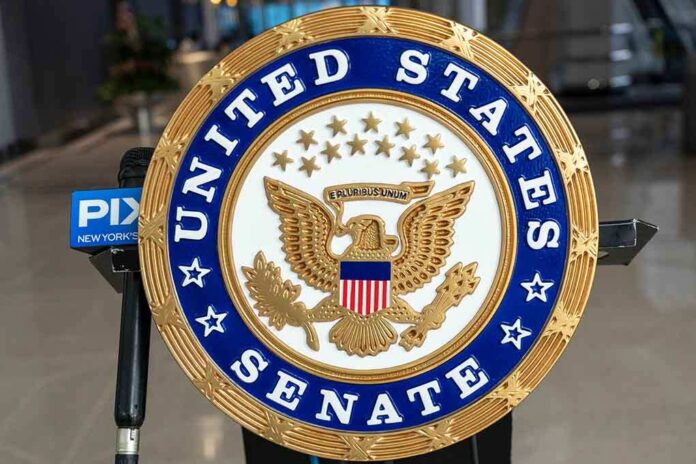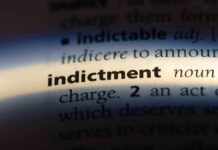
Senators quietly secured a $500,000 legal shield for themselves—leaving frustrated conservatives questioning why Congress gets special privileges while Americans pay the price.
Story Snapshot
- A late-night Senate provision lets senators sue for up to $500,000 over secret subpoenas, sparking outrage and accusations of elitism.
- House Republicans moved to repeal the payout, but Senator Lindsey Graham blocked their efforts, arguing for expanding protections to all Americans.
- The controversy exposes deep divides within the GOP and raises concerns about transparency, government overreach, and constitutional fairness.
- Legal experts warn the provision creates a troubling double standard, granting lawmakers rights denied to ordinary citizens.
Senate Inserts Damages Provision Amid Arctic Frost Investigation
In late 2025, the Senate quietly added a provision to a must-pass government funding bill that allows senators to sue the federal government for up to $500,000 if their phone records are subpoenaed without notice. This move came directly in response to Special Counsel Jack Smith’s “Arctic Frost” investigation, which targeted alleged efforts to overturn the 2020 election and led to secret subpoenas of at least ten Republican senators’ phone records. The provision was reportedly inserted at the urging of Senate Majority Leader John Thune, catching many lawmakers—and the public—off guard. Critics immediately pointed to the lack of transparency and warned that such legislative maneuvers undermine faith in the political process and erode trust between Congress and the American people.
House Republicans, blindsided by the inclusion of the damages provision, quickly moved to repeal it after its implications became clear. Speaker Mike Johnson and Rep. Chip Roy led the charge, expressing outrage at the special carve-out for senators and highlighting that the provision was slipped in during last-minute negotiations. The House passed a repeal measure, but Senator Lindsey Graham, whose own records were targeted by the Arctic Frost probe, immediately blocked efforts to scrap the payout. Graham argued that all Americans—not just members of Congress—deserve the right to sue the government if wronged, framing his defense as a stand for individual liberty and constitutional protections.
Government Privilege and Equal Protection Under the Law
Legal experts and conservative voices have denounced the Senate provision as a blatant double standard, granting lawmakers protections and financial remedies unavailable to ordinary citizens. John Fishwick Jr., a former U.S. Attorney, criticized the provision for creating “favoritism that the average person doesn’t have,” warning that it could undermine law enforcement’s ability to conduct effective investigations. Historically, Congress has enjoyed certain immunities, but this explicit financial remedy is unprecedented and raises serious questions about the balance between congressional privilege and equal protection under the law. For many conservatives, the episode is a clear example of government overreach and self-serving behavior that erodes trust in public institutions.
The controversy has fueled intra-GOP conflict, with House and Senate Republicans deeply divided over the legitimacy and necessity of the provision. While some senators defend it as a necessary check on government power, others argue it sets a dangerous precedent and distracts from core conservative values like fiscal responsibility and limited government. The episode has also drawn public scrutiny of congressional privileges, with taxpayers voicing concerns about being left to foot the bill for lawmakers’ special protections.
Broader Implications and Potential Expansion of Legal Remedies
Senator Graham’s public defense of the damages provision now includes calls to expand the right to sue the government for privacy violations to all Americans. He stated, “The day you can’t sue the government who’s wronged you, you’ve lost your freedom,” tapping into widespread frustration over government surveillance and lack of accountability. The provision remains in legal limbo, with the Senate resisting House efforts to repeal it and Graham threatening further legal action if his proposal is not considered. Experts warn that expanding these legal remedies could have significant financial implications for the federal government and potentially chill law enforcement investigations involving lawmakers and citizens alike.
Lindsey Graham blocks House effort to scrap his $500,000+ Arctic Frost payday https://t.co/GiaezV8t19
— BREAKING NEWZ Alert (@MustReadNewz) November 21, 2025
Short-term, the dispute has heightened partisan tensions and legislative gridlock, exposing rifts within the Republican caucus and eroding trust between House and Senate members. Long-term, the provision could face constitutional challenges and set a precedent for future legislative carve-outs, impacting congressional oversight and accountability for years to come. For conservatives concerned about government transparency, fiscal discipline, and equal treatment under the law, the Arctic Frost provision represents a critical battleground in the ongoing fight against special interests and government overreach.
Sources:
Controversial Senate provision on Arctic Frost phone subpoenas sparks GOP infighting
Senate’s new bill allows GOP senators to sue government over secret phone data subpoenas
Senate’s new bill allows GOP senators to sue government over secret phone data subpoenas
US House votes to cancel big payouts for senators over Arctic Frost phone subpoenas
Republicans feud over Arctic Frost provision












